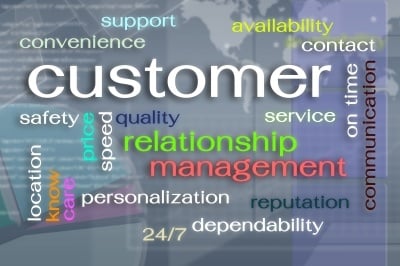ERP Software Valentine: 3 Warning Signs Love is Lost
Does Your ERP Software Really Love You? Valentine's Day is over but hopefully the spirit of expressing your love to that special someone is...
2 min read
Clients First, Texas Mon, Nov 25, 2013

Manufacturing companies have various choices when it comes to choosing ERP systems. One of the major decisions you will have to make is whether to go for an on-premise (in-house) or cloud (also known as SaaS) ERP system. Both deployments offer the basic functionality you need in an ERP. However, the advantages and disadvantages of the two systems can help you determine which will be right for your organization.
of the major decisions you will have to make is whether to go for an on-premise (in-house) or cloud (also known as SaaS) ERP system. Both deployments offer the basic functionality you need in an ERP. However, the advantages and disadvantages of the two systems can help you determine which will be right for your organization.
Like the word suggests, an on-premise ERP is a system that are installed locally on your company’s hardware and servers. The system is managed by your IT staff. On the other hand, cloud ERP is provided as a service by a Microsoft Gold ERP Partner or other software vendor. With a SaaS ERP, the software and your company’s data is managed centrally on the Internet (“cloud”) by the ERP vendor. You access the data and software functionality using a web browser.
Let’s look at the advantages and disadvantages of on-premise and SaaS ERP systems.
With on-premise ERP software, your business data is kept close to the source. You do not have to worry about data security threats, leaks and third parties accessing your data. The system’s controls are in your hands.
You need to assign an IT manager to monitor the data on your on-premise ERP. If your organization holds sensitive data such as manufacturing blueprints, R&D modules, business plans and strategic organizational data, an in-house ERP system will make the most sense.
If you choose an in-house ERP system, the consultant can help you with setting it up, training, and choosing modules. However, after installation, the running and maintenance of the system will be the work of your IT staff. This may mean having to hire a full time ERP manager to constantly monitor, maintain and troubleshoot the system. The question is, does your IT manager have the skills and abilities to run the system?
Another downside of using on-premise systems is high upfront costs that come with initial site assessment, system installation, configuration and deployment. You will need to purchase high-end servers and upgrade various infrastructures for installation and running of the system. You can pay for capacity that you will never use. Moreover, the costs associated with maintenance, diagnostics and repair will be on you.
Since cloud ERP is hosted by your local ERP software vendor, you will not have to worry about most issues that come with on-premise systems. Cloud systems come ready to be deployed for use in your organization. You will not have to build your own infrastructure or take months before you start using the system. Moreover, you will not have to performance server maintenance, keep the infrastructure up to date in line with technology changes, perform security upgrades or install patches and so on. All these are left at the hands of the ERP vendor.
Cloud systems are also cost effective especially for manufacturing companies looking to get started fast. To use the system, you have to pay for a license, usually on a recurring term. The license can be upgraded or downgraded to access more robust features or capacity of the software depending on your organization’s needs.
With an on-premise system, you know that your data is secure since you have control on who accesses the building and the system. However, with a cloud-based server, it is the ERP vendor that accesses the system. Are you comfortable giving a third party access to your data?
Moreover, since the data is held in the cloud, there is always the possibility of third party access. Servers can be hacked and your data compromised.
In the end, the major differences between on-premise and cloud based ERP systems can be summarized into three factors: costs, deployment and security. Cloud systems are cost-effective and can be deployed faster.
On the other hand, on-premise systems are more secure though they come with prohibitive initial costs. Your decision on choosing an ERP system should be based on both your short term and long term objectives. An ERP systems consultant can help you weigh your options to determine the right system for your organization.

Does Your ERP Software Really Love You? Valentine's Day is over but hopefully the spirit of expressing your love to that special someone is...

Cloud ERP Consultants Review the Power of the Portal Most people don’t generally start out looking for and ERP solution—they start by considering...

The year 2015 has just started; yet business analysts have already confirmed that it will shape the future of ERP. A series of ERP trends that have...